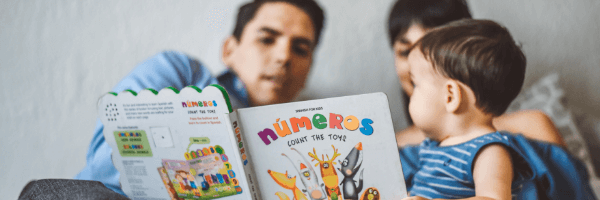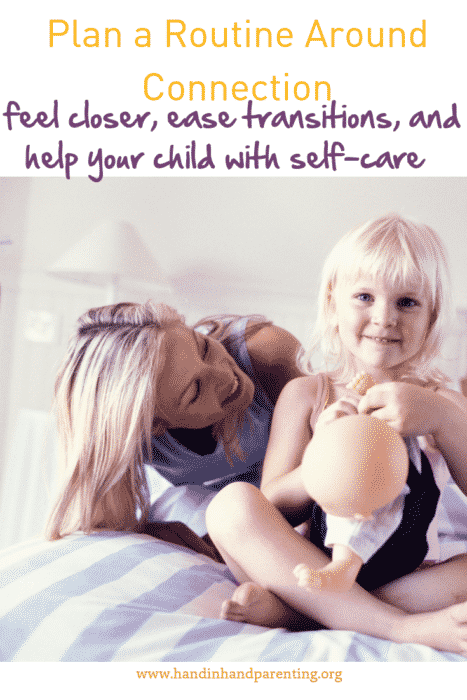A Guest Post by Dr. Laura Markham

A predictable routine helps children know what to expect so that they feel safe. Routines also help kids internalize constructive habits and develop a sense of mastery in handling their lives. For instance, in homes where there is no set time or space to do homework, kids may never learn how to sit themselves down to accomplish an unpleasant task.
Kids who don't develop basic self-care routines, for everything from grooming to food, may find it hard to take care of themselves as young adults.
Routines can also help us parents build regular habits of connection into our daily lives. Parents are by definition overwhelmed; we don't need one more thing on our lists. But when we look at each part of our family routine as an opportunity to build closeness, we find that connection actually makes the routine easier by smoothing the transitions that are so hard for most children. For instance, if getting your child to stop playing and get dressed is a challenge every morning, add a meaningful connection time during that transition. Maybe you and your child have a warm chat about what you are each looking forward to while they dress every morning.
Building Connection Into Your Daily Routine Can Boost Closeness and Cooperation
Why not create a few daily habits that deepen and sweeten your relationship with your child?
Here are some ideas to choose from to work into your schedule.

- Snuggle with your child for five minutes when they first wake up.
- Take an extra minute to sit down with your kids at breakfast and find out what they are looking forward to that day.
- Instead of yelling at your children to keep moving through the morning routine, empower them with a chart of photos of them doing each task, and let them be “in charge,” while you just smile, point at the chart and ask what needs to be done next. The connection part might include you giving a hug after each task is completed.
- Write a love note and slip it in your child's lunchbox.
- Skip together as you walk to the school bus, or sing happy songs in the car.
- Hug when you say goodbye, when you are re-united, and as often as possible all day long. Tousle hair, pat backs, and rub shoulders.
- As you hug your child goodbye, say that you can't wait to see them later that day.
- Take a few minutes to get organized before you leave the office so you can really leave your work behind and turn off your phone. In the evening, you'll be able to give your family the best of you, not what's left of you.
- Turn off your phone and music when your child gets in you at the end of the day and listen to he most and least favorite parts of the day. Keep your phone turned off until your children are in bed.
- Spend 15 minutes of Special Time with each child, just following their lead and pouring your love into them. This habit alone can transform your relationship with your child.
- At dinner, ask an interesting question and give each child time to answer while everyone listens.
- Have a pillow fight or other roughhousing before bath time.
- Enjoy reading a bedtime story. Savor the smell of your child's hair and the warmth of their body.
- At bedtime, say goodnight to each part of your child's body, touching each part in turn gently, with a little massage.
- Lie with each child for a few minutes in the dark, just snuggling companionably and telling them you feel lucky to be their parent.
Create a Plan for Daily Connection
Choose three daily habits that you want to begin. Take a few minutes to write about when and how you can make them happen, like these two examples:
“I will spend at least 10 minutes at bedtime snuggling with each child at bedtime after lights out, just to connect and listen. This is in addition to any time spent reading and is not the time for me to bring up issues that may be bothering me. When my child brings up issues, I will listen and reflect (“That really bothers you?”) and assure him that we will address the issue tomorrow. The next day, I will follow through.”
or, “I will get a notebook to share with my ten-year-old as a conversation journal where we write back and forth to each other.”
After 30 days, any action becomes a habit, so you don't have to think about it. You'll be well on your way to ensuring connections happen each and every day.

Dr Laura Markham is a leading advocate for parents and children, and the founding editor of AhaParenting.com. She earned her PhD in Clinical Psychology at Columbia University, and is also a mom! This post is adapted from Dr Laura Markham's workbook, Peaceful Parent, Happy Kids.
